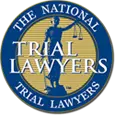Florida Passes Major Tort Reform Legislation
On March 24, 2023, Florida Gov. Ron DeSantis signed a sweeping tort reform bill into law. Dubbed HB837, the bill leaves far-reaching impacts on the civil judicial system, including insurance providers, personal injury lawsuits, attorney fees, and more. The law’s changes went into effect immediately.
The following article addresses the changes in the new legislation and what it could mean for you as a personal injury victim. For specific information on how the new law affects your chances of getting compensation after a negligent party injured you or someone you love in Florida, contact an experienced personal injury attorney near you.
Statute of Limitations Shortened
 Like all other states, Florida limits the time injured victims can file suit against those responsible for their injuries and recover compensation. Previously, Florida allowed a victim four years to file a lawsuit in civil court for most general negligence cases. The new bill shortened the statute of limitations to two years.
Like all other states, Florida limits the time injured victims can file suit against those responsible for their injuries and recover compensation. Previously, Florida allowed a victim four years to file a lawsuit in civil court for most general negligence cases. The new bill shortened the statute of limitations to two years.
Incidentally, the statute of limitations for medical malpractice and wrongful death in Florida was already two years.
Exceptions exist for military servicemembers who cannot appear in court due to serving active duty.
Although the change was effective on March 24, 2023, the bill noted that the new statute of limitations applies only to causes of action that occurred after the effective date. The law may not affect insurance contracts entered into before the effective date.
Still, the anticipation of the bill’s passing and the immediate effect of its changes caused a massive influx of personal injury lawsuit filings throughout Florida. Courts will likely experience substantial delays in processing the new filings for some time.
Modified Comparative Negligence
Before the changes, plaintiffs in a personal injury lawsuit in Florida could recover damages no matter how liable they were for their own injuries. For example, even if a plaintiff was 60 percent responsible for causing their injuries, they could still recover 40 percent of their damages.
Florida replaced this pure comparative negligence rule with a modified comparative negligence rule. Under the new law, a plaintiff may only recover damages if they contributed no more than 50 percent to their injuries. If the plaintiff bears more than 50 percent liability for their injuries, they cannot recover damages from the defendant.
Florida’s pure comparative negligence rule still applies to medical malpractice claims, including those involving wrongful death.
Premises Liability Lawsuits
The new law now requires courts to consider the fault of all people who contributed to an injury in cases where a plaintiff entered a premises legally and suffered injuries because of a third party’s criminal act.
The law also provides a presumption against liability for owners of multi-family residential properties who face claims based on third-party criminal acts if they take certain safety and security measures and the third party did not work for the property owner.
Proving Medical Expenses in Personal Injury and Wrongful Death Cases
The bill also changed how fact-finders must calculate medical damages in personal injury and wrongful death cases and what evidence courts can admit when determining past, present, and future medical expenses.
These include:
- For past expenses already paid, the claimant must show evidence of the amount actually paid regardless of who paid it.
- For past expenses not paid, the claimant has health insurance other than Medicaid/Medicare, they must provide proof of the amount their health care coverage will have to pay to satisfy the charges.
- For past expenses not covered by health insurance or Medicaid/Medicare, the amount is 120 percent of the Medicare reimbursement rate effective at the time services were rendered. Absent a Medicare rate, the amount will be 170 percent of the Medicaid rate.
If providers transfer the right to receive payment to a third party, they must provide the actual amount the third party paid for the accrued expenses.
For future medical services, claimants who have health coverage other than Medicare/Medicaid must provide the amount their healthcare provider would pay for future services. If they have Medicare/Medicaid, the same percentages from above apply.
Attorney Fees
A lodestar attorney fee refers to the reasonable number of hours an attorney spent on a case multiplied by their reasonable hourly rate. Prior to the new legislation, courts allowed attorneys to calculate those fees. Now, courts deem the lodestar fee reasonable and sufficient.
However, certain exceptions exist in rare and exceptional circumstances. For instance, an attorney must show the plaintiff could not secure competent legal counsel otherwise. Also, if the insured party or beneficiary wins the case, the court can award their attorney fees. These fees only apply to declaratory action cases and not to commercial or residential property insurance declaration actions. The fees also cannot be transferred to someone other than the insured or beneficiary.
Bad Faith Claims
Plaintiffs cannot bring action against an insurer if the insurer provides the lesser of the policy limits or what the plaintiff demands within 90 days of receiving the claim and sufficient evidence. If the insurer does not tender payment as required and the case proceeds to trial, plaintiffs cannot claim bad faith or admit that as evidence of bad faith.
If the insurer does not pay within 90 days, the statute of limitations for the insured to file a bad faith claim will extend by 90 days. The plaintiff cannot use mere negligence to prove bad faith, and they and their legal counsel must have acted in good faith when bringing the claim. Also, courts may consider whether any parties involved acted in bad faith and reasonably reduce damages accordingly.
Other Important Changes
HB837 imposes additional changes that affect personal injury lawsuits, compensation, and attorney fees, including:
- Prohibiting transferring or assigning of attorney fees
- Awarding costs and attorney fees in certain other cases
- Addressing attorney fees in surplus lines of insurance matters
- Addressing the distribution of proceeds when two or more third-party claims from one incident exceed policy limits
- Providing for a Specified Offer of Judgment in insurance contract actions
Consult a Florida Personal Injury Attorney for Help

For help understanding these new legislative changes and what they mean for your personal injury claim, reach out to the experienced Florida personal injury attorneys at Boohoff Law for your free consultation.
Free Consultation
We Are Here For You 24/7
Reviews
– Elissa M.
“Really pleased with Boohoff Law! Received immediate responses when I had any questions. Treated amazingly by all staff … made this process a true breeze!”
– Caitlyn M.
– Brandy K.
Related Posts
Navigating the Maze of Liability: When an Out-of-State Motorist Causes Your Accident
Lowball Offer for Your Totaled Car? What To Do When Your Car Was Totaled and the Insurance Offer Seems Too Low
Wrecked Without a Buckle: Can I File a Claim if I Wasn’t Wearing a Seatbelt in a Car Accident?
Recovery is personal.
We’re here for you.
We’re close by. And if you can’t make it to us, we’ll meet you where you need us, at home or in the hospital.
You're better off with Boohoff.











The information on this website is for general information purposes only. Nothing on this site should be taken as legal advice for any individual case or situation. This information is not intended to create, and receipt or viewing does not constitute, an attorney-client relationship.
available 24/7
(877) 999-9999
